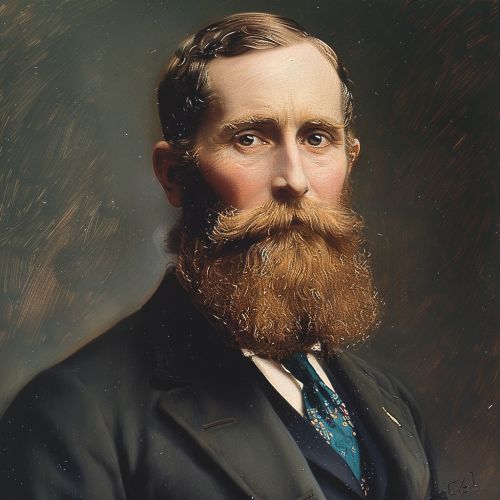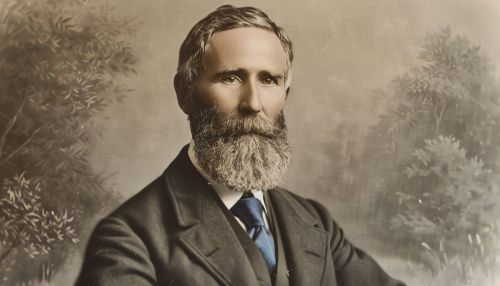Alfred Russel Wallace
Early Life
Alfred Russel Wallace was born on January 8, 1823, in Llanbadoc, Monmouthshire, Wales. He was the eighth of nine children of Thomas Vere Wallace and Mary Anne Greenell. His father, a failed solicitor and amateur artist, moved the family to Hertford, Herefordshire when Wallace was five. The family was of modest means, and Wallace's formal education was limited to the years he spent at Hertford Grammar School.
Career and Contributions to Science
In 1841, Wallace took a job at the Collegiate School in Leicester as a master, where he met Henry Walter Bates, a fellow teacher with a shared interest in natural history. This friendship sparked Wallace's interest in entomology and led to his decision to become a professional naturalist.
In 1848, Wallace and Bates embarked on a voyage to the Amazon to collect specimens for sale and study. Wallace spent four years in the Amazon, collecting over 100,000 insect, bird and animal specimens. Tragically, on his return voyage in 1852, his ship caught fire and sank, taking with him all his notes and collections. Despite this setback, Wallace set out on another expedition in 1854, this time to the Malay Archipelago, where he would spend the next eight years.
It was during his time in the Malay Archipelago that Wallace formulated his theory of natural selection, independently of Darwin. In 1858, he wrote to Darwin outlining his theory, which prompted Darwin to publicly present his own theory, which he had been developing for over 20 years. This led to the joint publication of both theories in a paper to the Linnean Society of London in 1858.
Wallace's work in the Malay Archipelago also led to his proposing the "Wallace Line", a boundary that separates the fauna of Asia from that of Australia. This line, which runs through Indonesia, is still recognized today in the field of biogeography.
Wallace returned to England in 1862 and spent the rest of his life writing, lecturing, and researching a wide range of topics including biogeography, evolutionary biology, and social and political issues. He published a total of 22 books and over 500 articles and papers during his lifetime.
Death and Legacy
Wallace died on November 7, 1913, at the age of 90, in Broadstone, Dorset, England. His contributions to the field of natural history and evolutionary biology are still recognized today. He is remembered as one of the leading evolutionary thinkers of the 19th century, and his work continues to influence modern scientific thought.


